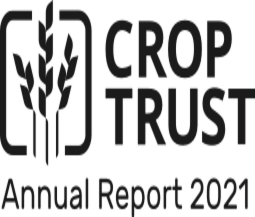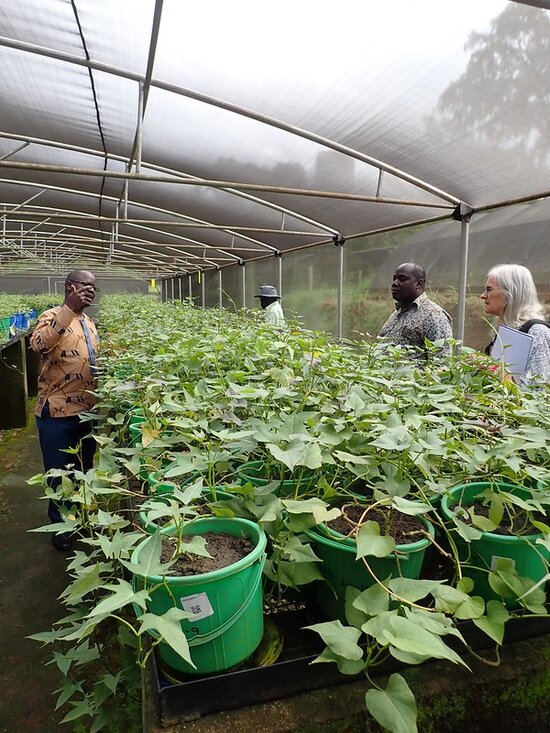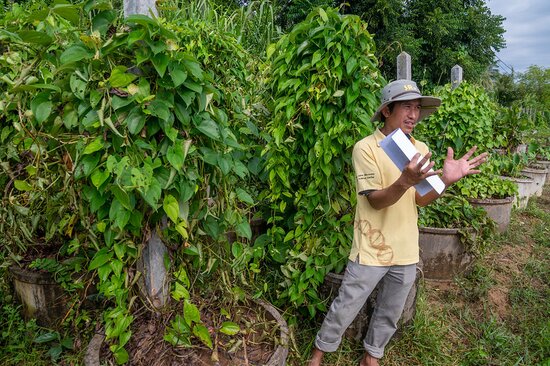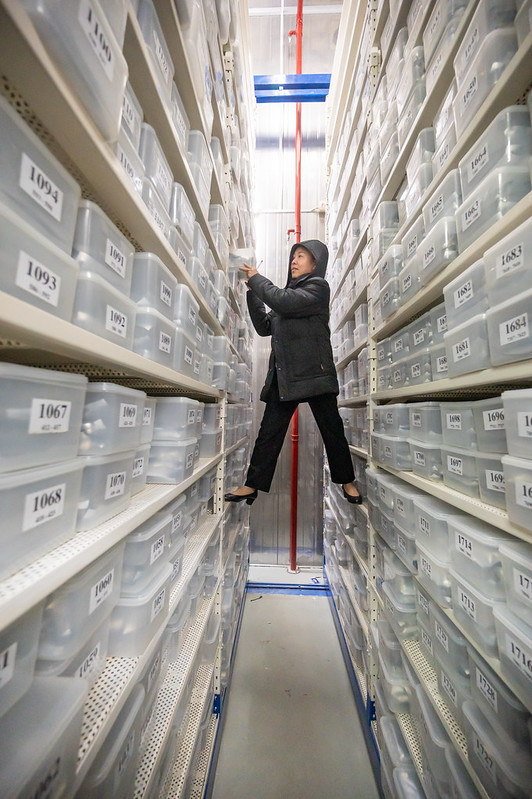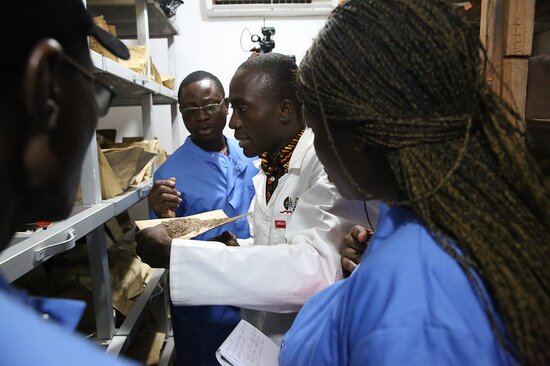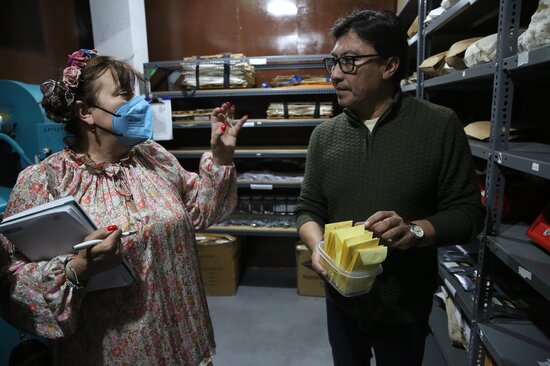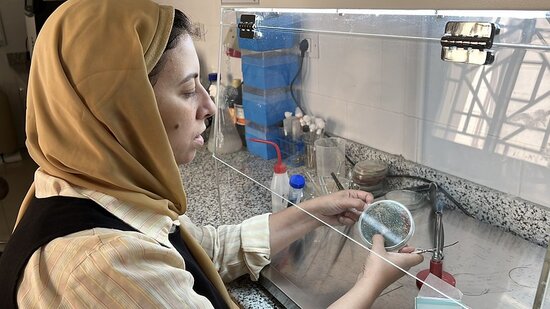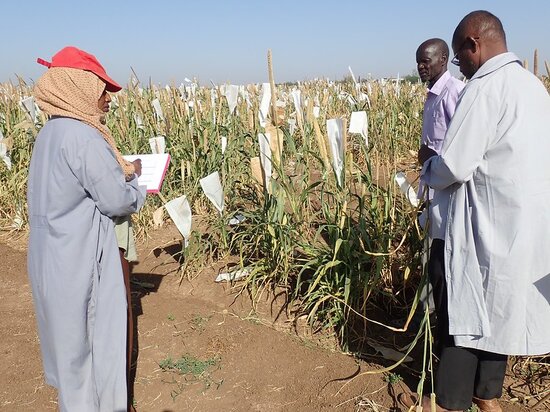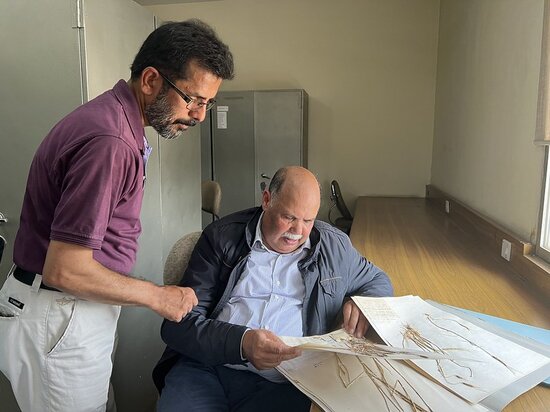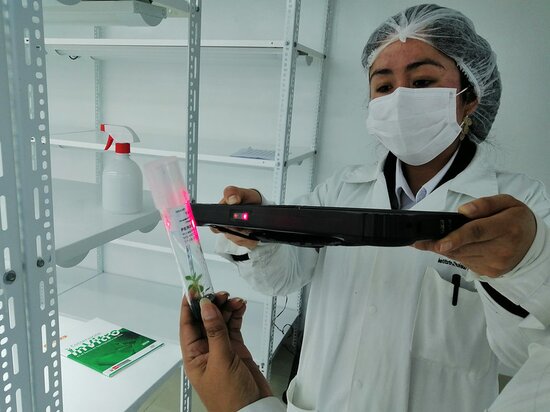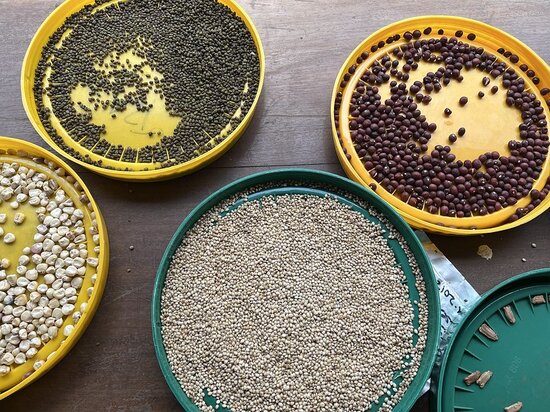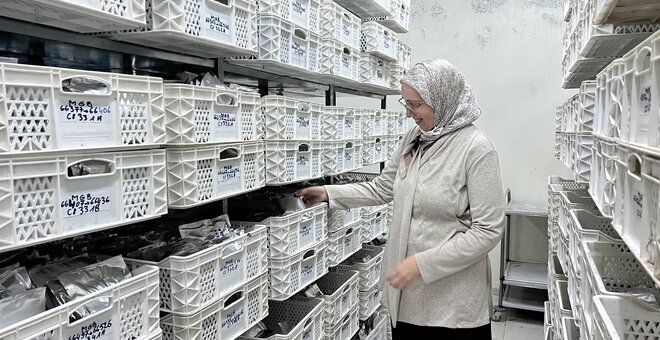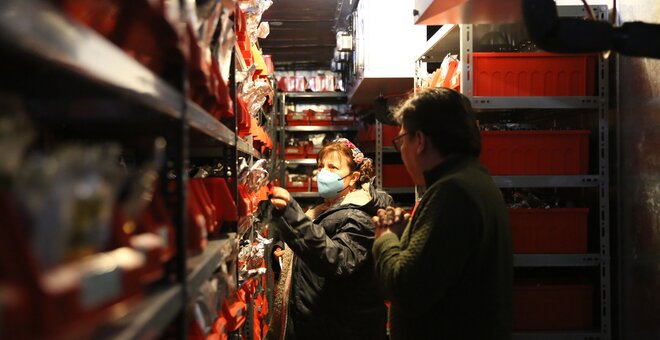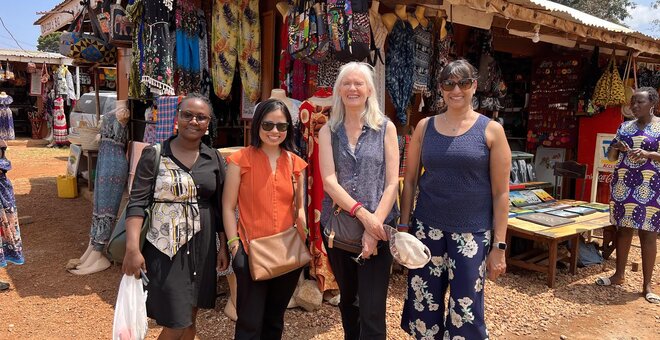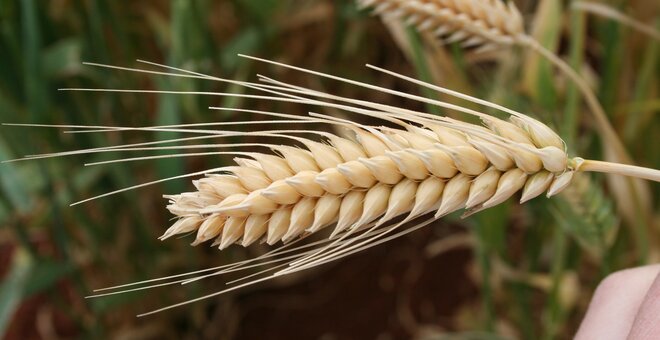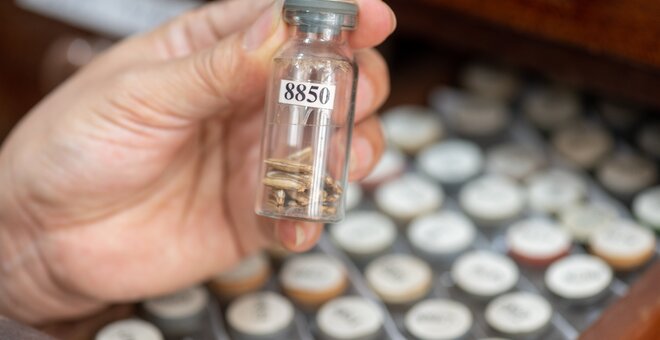BOLD strides into the future
BOLD is a 10-year project, funded by the Government of Norway, that builds on the successes and achievements of the Crop Wild Relatives Project to strengthen food and nutrition security worldwide.
Launched in 2021, the BOLD marked its first full year of operation in 2022, and the team took a number of major strides forward during the year.
At a glance
The BOLD Project will help safeguard crop diversity in genebanks and make it available to researchers and breeders, to develop new crop varieties that can boost smallholder farmers’ resilience to climate change and increase food and nutrition security.
PROJECT TITLE: Biodiversity for Opportunities, Livelihoods and Development
HIGHLIGHTS FROM 2022: All 15 national genebanks in the project were reviewed by teams of external experts; agreements were signed for all 7 crop pre-breeding projects; seed systems research activities were launched in three countries; 38 grant agreements were signed for regeneration and safety duplication; numerous blogs and other communications materials were delivered; the Yemen national genebank became the first to receive a grant from the Emergency Reserve.
FUNDING PARTNER: Government of Norway.
Enhancing the capacity of national genebanks
Teams of genebank experts from around the world completed external reviews of the 15 national genebanks that will receive tailored support from the Project to enhance their conservation, management and use of crop diversity.
The recommendations of the reviews—developed in close partnership with the genebanks’ leaders—are tailored to the specific needs of each genebank. They focus on such activities as: upgrading facilities and equipment; staff training in genebank operations and conservation policy; securing safety duplication; enhancing documentation; implementing a quality management system; and ensuring that the crop diversity that the genebanks hold is readily available.
These recommendations will form the basis for BOLD Project support and engagement with the 15 genebanks over the next eight years.
The genebanks receiving this support include national genebanks in Asia (Azerbaijan, Bhutan, the Lao People’s Democratic Republic, Pakistan and Vietnam), Latin America and the Caribbean (Cuba, Ecuador and Peru), the Near East and North Africa (Egypt, Lebanon, Morocco, Sudan and Yemen), and sub-Saharan Africa (Tanzania and Uganda). All the reviews were done on-site, except for the Yemen genebank. Because of challenging conditions in that country, the review team met the head of the genebank at the Ninth Session of the Governing Body of the International Treaty on Plant Genetic Resources for Food and Agriculture—which took place in India in October 2022—and had intensive discussions there over several days.
Using crop diversity to adapt to climate change
The BOLD Project is building on the pre-breeding partnerships on alfalfa, barley, durum wheat, finger millet, grasspea, potato and rice that were developed under the Crop Wild Relatives Project. During the year, agreements were signed with lead partners for all seven crops and with the James Hutton Institute, UK, on data management. An initial meeting was held with all Project partners in October 2022.
The Project will support on-farm trials and other participatory activities, to ensure more effective development and adoption of novel crop diversity. As of 2022, the pre-breeding work involves partners in 45 countries.
Sharing diversity
Genebanks are a treasure trove of diversity that farmers, researchers and plant breeders can use to sustainably meet the need for more and better food.
But genebanks often have their hands full with the conservation aspects of their work and may not be very proactive in sharing the wealth of material in their care with those who could put it to use.
The BOLD Project is working to change this through research and pilot studies to boost the role of genebanks in seed systems—the channels and mechanisms that determine how farmers acquire and use new crop diversity.
This work is led by the Norwegian University of Life Sciences (NMBU) and involves partners in Bhutan, Ecuador, Tanzania and Uganda—countries with differing policy and institutional environments as well as diverse contexts for seed systems.
BOLD held national launch workshops in Bhutan, Ecuador and Uganda in late 2022 and will hold one in Tanzania in early 2023. Following on from these activities, the Project will coordinate collaborative research to identify possible ways to strengthen linkages between genebanks and other elements of the seed system, which will contribute to developing interventions that the Project will test in the pilot phase.
Safeguarding crop diversity in Svalbard
Seeds need to be kept in more than one genebank to ensure that if anything happens to their original host genebank—such as flood, fire, loss of electrical power to run the cold rooms and freezers or even a missile attack—they will still be available somewhere else, and the collection can be reconstituted.
To mitigate such threats, in October 2021, the Crop Trust and its partners launched a competitive grant program to support the regeneration and backing-up of crop diversity in another genebank and in the Svalbard Global Seed Vault. The program is part of the BOLD Project and the call was launched in collaboration with the Nordic Genetic Resource Center (NordGen), the Norwegian Ministry of Agriculture and Food, and the International Treaty on Plant Genetic Resources for Food and Agriculture.
The response was overwhelming, with more than 90 applications received. Of these, the Project is following up with 53 applicants for possible grants.
By the end of 2022, the Project had signed agreements with 38 applicants in 29 countries, including genebanks and other organizations conserving crop diversity in Albania, Brazil, Mali, Papua New Guinea and Suriname. Several of these have already started putting their plans into action, and the Agricultural University of Tirana (Albania) and FABIA CSB—a civil society organization in North Macedonia—will be making their first deposits under the grant in February 2023.
Celebrating outcomes, creating connections
Crop Trust communications staff accompanied all the genebank review teams and also made visits to Benin and Nigeria in support of safety duplication projects, where they took photographs of genebank operations and recorded video interviews with key staff. These are being used in communications campaigns that will raise awareness of the vital work that these genebanks do, both nationally and internationally. The Project has also identified individuals at each of the 15 partner genebanks who already have a communications role or are interested in becoming involved in this area. They will form the core of a planned communications “community of practice” that will work throughout the life of the Project to raise awareness on the importance of their role as keepers of crop diversity.
The Crop Trust published numerous blogs and press releases that highlighted the progress of the Project, such as the genebank reviews and the Svalbard grants. It was also instrumental in organizing a high-profile event at the Global Landscapes Forum (GLF) Climate event in November 2022 entitled Food forever: Climate-proofing our food for future generations. This brought together speakers from the Crop Trust and its partners to highlight the vital role of genebanks in underpinning food and nutrition security, and to describe how the BOLD Project can help.
Yemen genebank is first to receive support from Emergency Reserve
It doesn’t take much for a crop collection to disappear. Lack of funds to pay the electricity bill, or the malfunction of a cold room, is enough for invaluable, sometimes unique, diversity to disappear—forever.
In 2021, the Crop Trust and the Secretariat of the International Treaty on Plant Genetic Resources for Food and Agriculture (Plant Treaty) launched the Emergency Reserve for Genebanks—the first such formal facility to provide financial support to genebanks under imminent threat. The Emergency Reserve was made possible in part due to financial support provided by the Government of Norway through BOLD.
And in late 2022, the National Genetic Resources Center (NGRC) in Yemen became the first genebank to receive funding under this new mechanism.
Frequent power cuts are a fact of life in Yemen, and NGRC had installed solar panels and batteries to power the genebank’s freezers. But, by 2021, the batteries had reached the end of their operating life and needed to be replaced. The genebank tried to obtain the funds to replace them from the government and a variety of other sources, but it was not successful.
Fortunately, the Emergency Reserve was able to provide the USD 10,000 needed to replace the batteries. In November 2022, the genebank purchased the batteries on the local market and had local technicians install them, not only ensuring the continued operation of the genebank but also contributing to the local economy.
Related news and resources
Support for National Genebanks Underway
Seeds maintained in genebanks worldwide are the foundation of our future food and nutrition security.
16 Jun 2022
Strengthening Genebanks in Ecuador and Peru
A team of experts traveled to Ecuador and Peru to review the national genebanks in a visit organized by the Crop Trust under the Biodiversity for Opportunities, Livelihoods and Development (BOLD) Project.
Ecuador and Peru are...
11 Aug 2022
Sarada Krishnan, the Crop Trust’s new Director of Programs, talks about BOLD
Sarada Krishnan joined the Crop Trust as Director of Programs at the beginning of July 2022. Prior to joining the Crop Trust, Sarada was Director of Horticulture at the Denver Botanic Gardens in the USA.
In August 2022, she...
8 Sep 2022
Yemen Genebank Receives Emergency Funding
The National Genetic Resources Center (NGRC) in Yemen is the first genebank to receive funds from the new Emergency Reserve for genebanks facing urgent threats to their precious collections of crop diversity.
The Emergency...
9 Dec 2022
